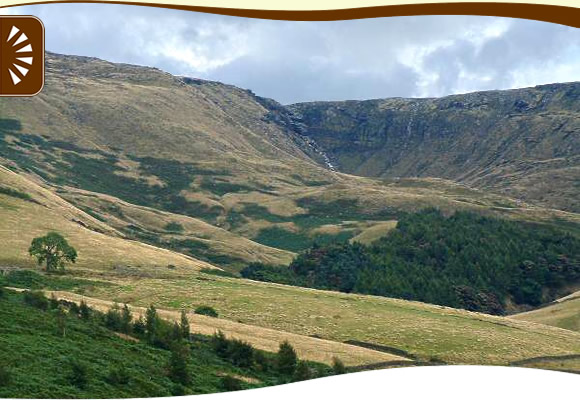
Something to CRoW About
It was to be another 17 years after the Kinder Mass Trespass before the passage of the National Parks and Access to the Countryside Act by the post-war Labour Government in 1949. This legislation set up the mechanism for the creation of National Parks, and the process for the negotiation of access agreements to open country.
The Peak District was the first to be designated, and almost immediately negotiated access agreements with landowners for the former ‘battlefields’ of the 1930s; Kinder Scout and Bleaklow.
Even so, huge tracts of moorland remained inaccessible to the public for another 50 years until the passing of the Countryside and Rights of Way (CRoW) Act in 2000, and its final implementation in 2005.
In 2002, Andrew, the 11th Duke of Devonshire, publicly apologised at the 70th anniversary celebration event of the Kinder trespass at Bowden Bridge for his grandfather’s ‘great wrong’ in 1932:
I am aware that I represent the villain of the piece this afternoon. But over the last 70 years times have changed and it gives me enormous pleasure to welcome walkers to my estate today. The trespass was a great shaming event on my family and the sentences handed down were appalling. But out of great evil can come great good. The trespass was the first event in the whole movement of access to the countryside and the creation of our national parks.
Andrew, the 11th Duke of Devonshire, 2002.
CRoW Act 2000
The CRoW Act can be seen as part of an unfinished agenda. The legal right of access should be extended to coastal areas, woodlands and water. We should be working towards a vision of access which includes urban as well as rural open spaces, and which is at least as good as the Scottish or better still, the Scandinavian model.
We live in an increasingly overfed and under exercised population and our moorlands are places where you can still have adventure, pure and unsupervised; quiet enjoyment, and real darkness at night, where you can still see the stars as they should to be seen. We need to value and use this priceless resource for all members of society regardless of age, ability, status or ethnicity.
We believe that the moorlands act as a vital ‘sink’ for carbon dioxide emissions, and thus play an important part in combating global warming, and they are also crucial for our water supply as catchment areas for the many reservoirs in the hills. Proper management of the moors can also alleviate flooding incidents in the lowlands.
Our moorlands are also important for their biodiversity. How many species have been lost or have declined since the National Parks were established half a century ago, and how much uncultivated land is left for our wild flowers? How much of our internationally-important heather moorland has been over-grazed and eroded, and has the former industrial pollution been replaced by pollution from heavy traffic and aircraft?
We believe that it is important to recognise the beauty on our doorsteps, and that there is no need to travel long distances, polluting the atmosphere, for our holidays and recreation (which also contributes to global warming and climate change).
Just as the shift in the pattern of land ownership caught us largely unawares in the last century, so the continuum of change in the financial support of conservation organisations such as the National Trust and the National Parks is slowly making itself felt today. Increasingly the National Trust finds its expenditure out of pace with its income, and manpower on the High Peak estate, which includes Kinder, has been cut and the National Parks are facing difficulties as successive Government settlements have reduced their income in real terms. Important projects such as the successful Moors for the Future project have been under threat and the new Government Agency, Natural England, suffered major cuts in its budget even before it started.
Our heritage, landscape, biodiversity and recreation are under threat as never before. The legacy which we inherited from the trespassers 75 years ago is a strong one. Benny Rothman, leader of the Trespass, always advocated that if we do not build on the legacy, we will not have a legacy left. The choice is ours.
Roly Smith (from notes by Henry Folkard of BMC and Terry Howard of RA and SCAM)
